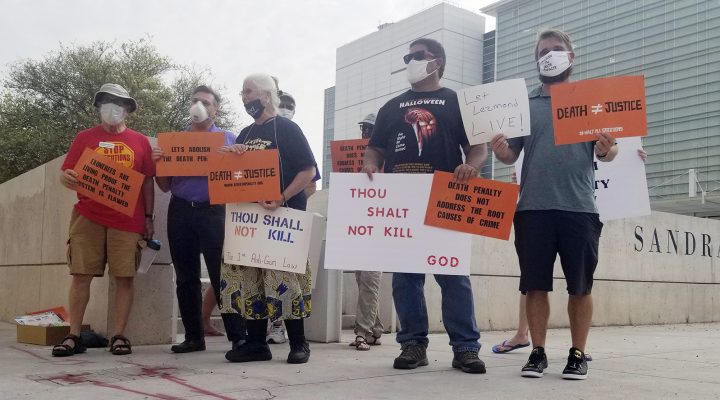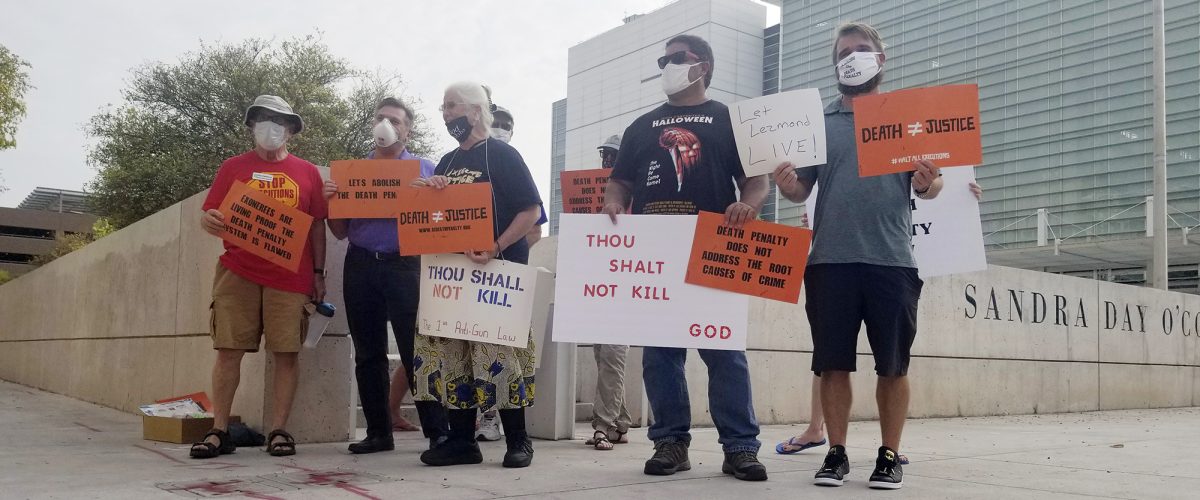Capital punishment has proved to be so ineffective at preventing crime that all its supporters have left is the thirst for revenge, a panel of anti-death penalty leaders agreed during a Sept. 21 webinar hosted by the EJUSA Evangelical Network.
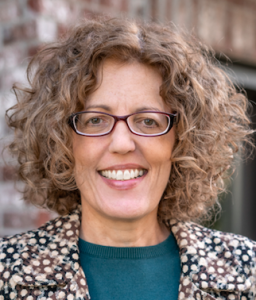
Stacy Rector
“Punishment is all there is to it. Retribution and punishment. There is no gain. No one is safer. No one is healthier. And it is very arbitrary,” said Stacy Rector, executive director of Tennesseans for Alternatives to the Death Penalty.
The Death Penalty Information Center reports states that execute prisoners experienced homicide rates 25% higher in 2019 than those that do not — a figure that spiked as high as 47% in 2007.

Sam Heath
“We know the death penalty does not deter crime, that it is racially discriminatory, expensive and done in a tortuous manner,” webinar moderator and network manager Sam Heath said.
He added that while 27 U.S. states still have the death penalty, “only a handful of counties really use it. It’s very few places.”
And the criteria those jurisdictions use to convict in capital cases is highly arbitrary, said Kat Jutras, state advocacy director of Death Penalty Alternatives for Arizona.
Jutras said she was incarcerated more than a decade ago in a facility separated by a fence from Arizona’s Death Row for women. At the time, all she heard about the condemned were rumors and assumptions about the severity of their crimes.
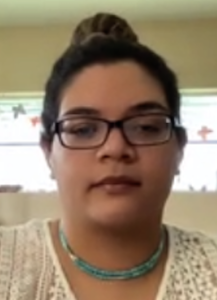
Kat Jutras
“Later on, you find out plenty of people who have committed violent crimes — murder — who are not on that side. And you start thinking, why is it so arbitrary who goes there and who doesn’t?” she said. “There are all these different inequities in the system.”
Factors that can increase the likelihood of a death sentence include age, race, mental health, sexual abuse and even geography, Jutras said. “Depending on where you are convicted, you have a higher chance of being on death row in Maricopa County than you do in Yavapai (County) for the same crime. To me, this isn’t justice.”
And there are economic factors, she added. “If you have money, if you have representation, you could be spared. But if you don’t, you really are at the mercy of the court.”
From any angle, capital punishment is an absolute policy failure, said Branden Cunningham, director of public engagement for the Nevada Coalition Against the Death Penalty.

Branden Cunningham
In addition to the failure to lower or eliminate murder rates, the death penalty drags victims’ families through years of agonizing appeals, often without the promised closure, is a burden on taxpayers and presents the constant risk of executing innocent persons.
“We have almost 40 years of data showing that it doesn’t work,” Cunningham said.
The inconsistent use of the death penalty within states also describes its use nationwide.
Nevada has 64 people on Death Row but is currently under a “de facto moratorium” in place since 2006, Cunningham said.
Yet there is a lack of political will and public interest in abolishing the law. “It’s easier to keep the status quo and talk about abolition than deal with the perceived electoral fallout,” he said. “Why do we keep it? Cultural inertia — this is what we have always done.”
The situation is much different in neighboring Arizona, where the state executed a blind, disabled and mentally ill prisoner in May after an eight-year hiatus on executions, Jutras said. “That’s how we started our executions here. Our attorney general is adamant about moving quickly” on more executions before leaving office at the end of the year, she said.
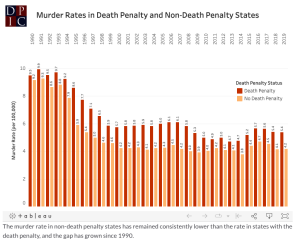
And that is possible because up to 20 of 111 Arizona death row inmates have exhausted their appeals, she said. “Unfortunately, more executions are going to happen here until we have a turnover in representation.”
Tennessee is in the midst of a pause on executions imposed in April by Republican Gov. Bill Lee. He took the step when “concerning issues” surfaced around the state’s lethal injection drugs and procedures, Rector said.
The state has executed 13 prisoners since resuming use of the death penalty in 2000, and 47 remain on Death Row.
“We are hopeful with this lethal injection issue that the state will take the investigation seriously, slow things down and make sure everything gets answered,” she said.
Rector, who is a Presbyterian minister, said her organization is appealing to conservatives and religious groups to help push for abolition: “We are constantly appealing to faith communities. Their impact is critically important.”
Related articles:
Faith leaders call for urgent opposition to Oklahoma plan to execute an inmate a month for two years
The death penalty is dying a slow death; it’s time we pull the plug | Analysis by Stephen Reeves
Panel of faith leaders will raise awareness of death penalty injustice
American support for death penalty remains low, as new debates arise in Oklahoma, Ohio and Texas

